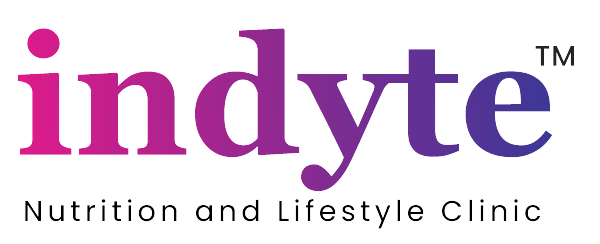- June 14, 2024
- PRIYANKA MAHESHWARI
- Comment: 0
- Weight Gain
Do you know that muscle mass changes with time, whether due to illness, diet, or even a change in appetite? However, muscle strength is an integral part of health, and maintaining a healthy weight is crucial for day-to-day activities and overall good health.
Whether it’s for health or aesthetics, there are multiple reasons why you want to gain some extra muscle mass.
So, you’ve decided to build up and gain muscle, but you want to do it naturally. Great decision! Gaining weight naturally improves your general health, speeds up your metabolism, enhances your quality of life, and makes you look attractive.
Here, we will help you understand how to gain healthy muscle weight and the factors that influence it. We will also provide valuable advice for naturally increasing healthy weight, regardless of whether you’re new to strength training or trying to improve your technique.
Importance of Muscle Growth for Overall Health
Muscles play a critical role in allowing bodily movements and balance to contribute to physical strength, the functioning of organs, the integrity of skin, and immunity allowing you to live a healthy and active life.
As we age, we tend to lose muscle strength by 3–8% per decade after hitting 30, and the declining rate almost doubles after the age of 60. So, it’s crucial to do whatever helps strengthen our muscles.
The best thing is that healthy lifestyle choices can strengthen your muscle mass regardless of age. And developing it has multiple advantages for our body:
Better Metabolism: So, if you want to burn calories while at rest, muscle tissue burns more calories than fat. Gaining muscle mass can increase your metabolic rate, which helps control your weight.
Improved Health and Enhanced Performance: Having stronger muscles lowers the chance of injury while performing intense exercise.
Good Bone Health: Increased muscle mass supports bone density by making it stronger, lowering any incidence of fractures.
Proper Mental Health: Regular exercising and strength training help improve mood, increase self-esteem, and reduce the signs of anxiety as well as depression.
Factors Influencing Muscle Growth
If you want to learn about some effective methods of gaining weight, you must understand certain factors that influence their development.
The body’s ability to build more muscle mass depends upon various factors, including:
Genetics
Genes play an integral role in determining our body’s ability to gain weight by influencing hormones and muscular formations. Some people are blessed with a high percentage of fast-twitch muscular fibers, while others don’t have this genetics playing in the background. However, with proper training and nutrition intake, everyone can gain muscles.
Age
As mentioned earlier, muscle strength decreases with age, a process known as sarcopenia. Proper training at an early age can slow down this process or even reverse it with the right strategy.
Gender
Biologically, men have more muscle mass than women because of their higher testosterone levels (a hormone responsible for promoting its growth in men).
Regardless of factors affecting muscle growth, it can be achieved with proper training and an optimized diet.
How to Gain Healthy Muscle Weight Naturally?

To achieve the desired physique, you must follow a strategic approach that includes a proper diet plan, exercise, and healthy lifestyle changes.
So, how would you approach a healthy weight gain? Here are some ways for you:
Optimize Your Diet with Balanced Nutrition
Nutrition is the foundation of muscle growth. You must eat more calories than you burn to naturally gain weight, with an emphasis on the macro and micronutrients that promote muscle synthesis and recovery.
Macronutrients Essential for Muscle Building
People might use distinct approaches regarding daily macronutrient intake. The following suggestions on macronutrient groups are mentioned in one study:
- 45–65 percent of calories from carbs
- 20–35% of calories from fat
- 10–35 percent of calories from protein
- Carbohydrates
Carbohydrates supply the energy that is required to perform intensive physical activity. You can consume complex carbohydrates in your diet, such as those found in whole grains, fruits, and vegetables, to help you recover after workouts.
- Fats
Good fats play a critical role in the manufacturing of hormones, such as testosterone. Add unsaturated fat sources to your diet, like avocados, nuts, seeds, and olive oil.
- Protein
The building blocks of muscle are proteins. You can fulfill your protein intake from lean meats, dairy products, eggs, lentils, and, if necessary, protein supplements. Start consuming 1.2 to 2.2 gms of protein per kilogram of your body weight every day.
Micronutrients and Their Role
Micronutrients are made up of vitamins, minerals, and antioxidants that our body needs in very small amounts, but they play a critical role in sustaining optimal health. Deficiency of any one of these nutrients can result in serious, possibly fatal conditions.
Micronutrients support a variety of bodily processes, such as the body’s production of vital hormones and digestive enzymes and normal growth and development.
- Vitamins
Vitamins A, C, D, and E improve immune system performance, muscle regeneration, and overall well-being. Vitamin D is especially important for muscular function and must be checked & supplemented.
- Minerals
Minerals like calcium, magnesium, and zinc are responsible for contraction, relaxation, and protein synthesis. So, make sure to get these by taking supplements or eating a balanced diet.
- Antioxidants
Antioxidants are very helpful in reducing inflammation and promoting better healing by battling oxidative damage caused by intense physical activity. Incorporate antioxidant-rich meals like leafy green vegetables, almonds, and berries.
Stay Hydrated and Consider Supplements
You might wonder if water really helps build muscle mass. A study shows that muscle is the primary reservoir of water in the body, with 76% of it being water.
It’s clear now that water definitely helps build muscle. Staying hydrated is important because heavy workouts, heavy breathing, and more sweating make you lose water faster.
Integrating Exercise with Nutrition
Regular exercise and the right amount of nutrition are the two most important things to build muscle mass naturally. You have already gone through the nutrition part, like what to eat and how much to eat.
Let’s look at how to build muscles with some beneficial exercises.
When you continually challenge your muscles to handle extra weight or resistance, they start to grow. This process is known as hypertrophy of the muscles.
Hypertrophy happens when your muscle fibers start to sustain injury. The body repairs damaged fibers, resulting in growth. Certain hormones like testosterone, human growth hormones, and insulin factors influence growth and repair. These hormones function by:
- Enhances the body’s ability to process protein
- Preventing protein breakdown
- Activating satellite cells that are also responsible for muscle development
- Boosting the production of protein synthesis and muscular growth-promoting anabolic hormones
The body can benefit from strength and resistance training:
- The pituitary gland releases growth hormones
- It encourages the release of testosterone
- Increase the sensitivity to testosterone
There are certain workouts that are particularly good for gaining muscular mass. Amongst the most effective workouts are:
- Deadlifts
- Squats
- Bench Press
- Overhead Press
- Pull-ups/Chin-ups
- Rows
Seek Professional Guidance and Monitor Progress
Reaching out for professional help can ensure your progress stays on track. Contact Indyte, a platform specialized for all your health-related concerns.
Consult with a Nutritionist
Dietitian Priyanka is a certified nutritionist to customize diet plans for weight gain according to your unique needs and objectives to ensure you’re getting the appropriate nutrients in the proper proportions. Additionally, as your body composition and muscle mass vary, she can assist you in modifying your diet as well.
- Track Your Progress
Maintaining a record of your exercises, food, and body measurements will help you stay motivated and make the necessary adjustments. Keep track of your development and recognize your accomplishments using a journal.
- Adjust as Needed
Over time, your body will adjust to the nutrition and training, so reviewing and modifying your training schedule is important. Maintaining flexibility is essential while changing your diet, adding new activities, or intensifying your workouts.
Conclusion
Growing muscle mass is a complex process that involves strategic exercise, specific diet, age, gender, and genetics. Although you can’t control your genetics, gender, and age factors, you can work on exercising and eating.
Now, you do not need to worry more about how to gain healthy weight because a healthy diet and proper workout routine are your way to get the desired body.
Implement a comprehensive plan combining efficient training, a balanced diet, and expert advice provided by Dietitian Priyanka. While building muscle takes time, the health advantages make the workout worthwhile.


